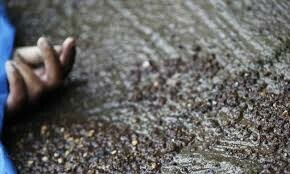 BEIJING, April 10: Marion Jones’ former relay team-mates paid the price Thursday for her doping offenses, losing their medals from the 2000 Sydney Olympics.
BEIJING, April 10: Marion Jones’ former relay team-mates paid the price Thursday for her doping offenses, losing their medals from the 2000 Sydney Olympics.
The International Olympic Committee executive board disqualified and stripped the medals from the athletes who won gold with Jones in the 1,600-meter relay and bronze in the 400-meter relay.
IOC legal adviser Francois Carrard, who assisted the disciplinary panel investigating the case, said the US Olympic Committee has been ordered to return the medals.
The decision follows the admission by Jones last year that she was doping at the time of the Sydney Games.
She returned her five medals last year and the IOC formally stripped her of the results in December. Jones won gold in the 100 meters, 200 and 1,600 relay, and bronze in the long jump and 400 relay.
Jones’ teammates on the 1,600 squad were Jearl-Miles Clark, Monique Hennagan, LaTasha Colander-Richardson and Andrea Anderson. The 400-relay squad also had Chryste Gaines, Torri Edwards, Nanceen Perry and Passion Richardson.
The runners had previously refused to give up their medals, saying it would be wrong to punish them for Jones’ violations. They have hired a US lawyer to defend their case, which could wind up in the Court of Arbitration for Sport.
“The decision was based on the fact that they were part of a team, that Marion Jones was disqualified from the Sydney Games due to her own admission that she was doping during those games,” IOC spokeswoman Giselle Davies said. “She was part of a team and she competed with them in the finals.”
The IOC put off any decision Thursday on reallocating the medals, pending more information from the ongoing BALCO steroid investigation in the United States.
A reshuffling of the medals could affect the medal results of more than three dozen other athletes. The IOC wants to know whether any other Sydney athletes are implicated in the BALCO files. The next IOC board meeting takes place in Athens, Greece, in June, followed by another meeting in Beijing on the eve of the Aug. 8-24 Olympics.
Davies said there was no timetable for a decision on redistributing medals, but noted there was an eight-year statute of limitations. The Sydney Games finished on Oct. 1, 2000.
Davies said the Jones’ relay case differed from that of US 400-meter runner Jerome Young, who was stripped of his gold medal in the 1,600-meter relay from Sydney because of a doping violation dating back to 1999. He ran only in the preliminary of the relay.
The IOC had sought to strip the entire American men’s team but the Court of Arbitration for Sport ruled in 2005 that there were no rules in place at the time of the Sydney Games for a whole relay team to be disqualified for an offense by one member.“Marion Jones ran in the finals and she was of her own admission doped during the Olympic Games,” Davies said. “Jerome Young was found to be doped before the Olympic Games and should never have competed in the first place.” —AP













































Dear visitor, the comments section is undergoing an overhaul and will return soon.